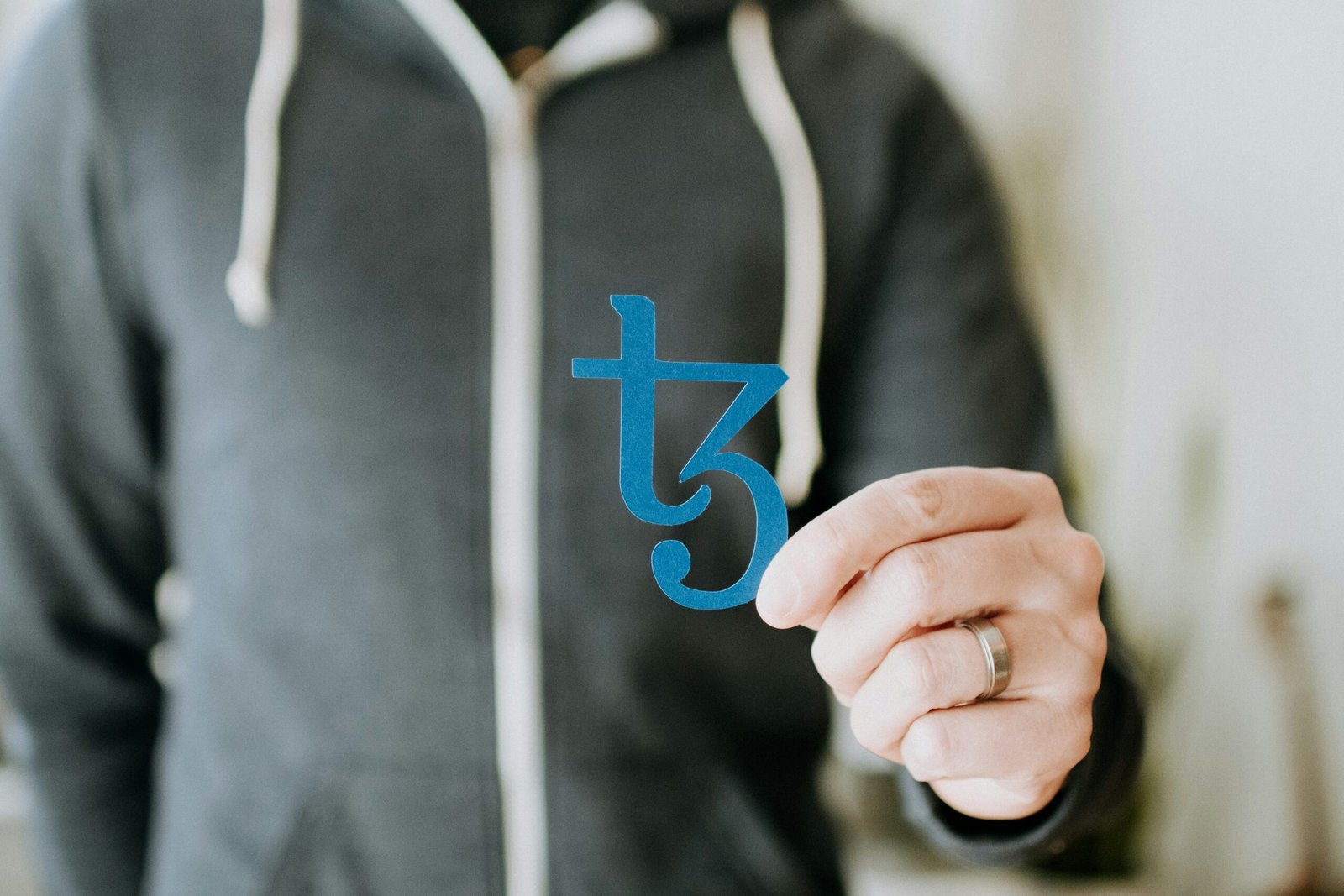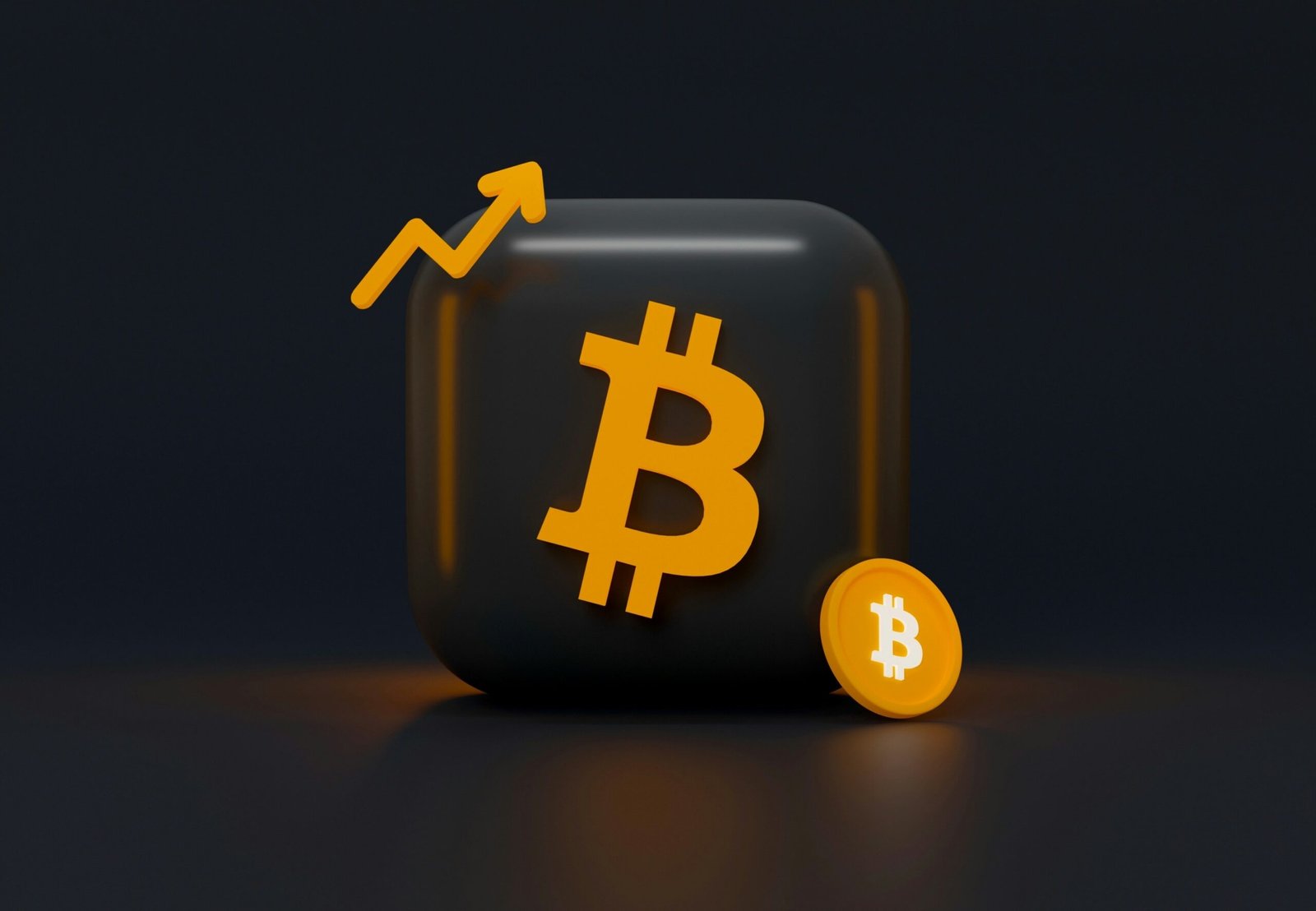Introduction to the Token Standard
The token standard is a foundational element in the digital economy, representing a set of protocols that define how tokens operate within a given system. It plays a crucial role in the interaction between digital assets and the applications that utilize them. By creating standardized frameworks, the token standard ensures interoperability and fosters innovation through a common understanding among developers, users, and stakeholders.
In modern science and philosophy, the concept of a token standard transcends mere technical definitions, extending its significance into various disciplines including technology, economics, and social constructs. Within these realms, token standards are instrumental in shaping how value is transferred and perceived, redefining the dynamics of ownership and exchange in the digital landscape. This becomes particularly compelling when one considers the implications for decentralized technologies such as blockchain, where token standards like ERC-20 and ERC-721 standardize how tokens are created and managed, leading to greater efficiency and reliability.
Moreover, the token standard represents a convergence point between mathematics and philosophy—mathematically through its algorithmic foundations and philosophically through questions of value, identity, and trust. The principles underlying token standards are not only relevant to the technology sector; they also provoke deeper inquiries into the fabric of society itself and our understanding of transactions, relationships, and economic systems. As we delve deeper into this exploration, we uncover how the token standard serves as a bridge between theoretical exploration and practical application, challenging traditional notions while ushering in new possibilities for interaction and collaboration in the digital age.
Understanding the Token Standard: Origins and Evolution
The concept of token standards has evolved significantly since the inception of digital currencies. Token standards, primarily associated with blockchain technology, emerged as a response to the need for interoperability and uniformity across platforms. Their origins trace back to the earliest digital currencies, with Bitcoin introducing a decentralized, peer-to-peer payment system in 2009. This marked a pivotal moment in the digital landscape, laying the groundwork for future token standards.
As the cryptocurrency market began to evolve, so did the types of assets that could be tokenized. The introduction of Ethereum in 2015 proved to be a crucial development, as its smart contract functionality allowed developers to create a broader array of tokens. Ethereum’s ERC-20 standard, launched in 201ERC), became the benchmark for fungible tokens, enabling developers to issue and manage their own cryptocurrencies more effectively. This innovation led to the proliferation of Initial Coin Offerings (ICOs) and spurred a wave of new projects that capitalized on the versatility of token standards.
Token standards have not only influenced technological advancement but have also raised critical philosophical questions about value, ownership, and trust. As digital assets gained traction, discussions surrounding the essence of value in a decentralized framework became increasingly pertinent. Philosophical inquiries began to explore how ownership is defined in a digital context, leading to the realization that token standards underpin a new understanding of asset management and ownership rights.
This evolution highlights the dynamic interplay between technology and philosophy, revealing how token standards serve as a bridge between the two realms. By establishing a common framework for asset representation, token standards have facilitated the growth of decentralized economies and reshaped traditional notions of value and ownership in the digital age.
Real-World Applications of Token Standards
Token standards have rapidly evolved beyond theoretical frameworks into impactful real-world applications, profoundly affecting commerce and community interactions. One of the most notable examples is the rise of digital currencies, particularly those based on established token standards like ERC-20 and ERC-721 on the Ethereum blockchain. These standards facilitate seamless transactions, enabling users to easily exchange cryptocurrencies for goods and services, thereby creating a decentralized economic model that challenges traditional banking systems.
Moreover, the emergence of Non-Fungible Tokens (NFTs) has revolutionized how we perceive ownership and value in the digital realm. NFTs, characterized by their uniqueness and indivisibility, have found applications in the art industry, where they provide artists a platform to tokenize their work, ensuring authenticity and potential royalties. This innovation allows creators to directly reach their audience, eliminating intermediaries while fostering a deeper connection between artists and their supporters. Additionally, the gaming industry has embraced NFTs, permitting players to own, trade, and monetize in-game assets, fundamentally transforming how individuals interact with virtual worlds.
Decentralized Finance (DeFi) represents another groundbreaking application of token standards, redefining traditional financial services. Utilizing smart contracts and standard protocols, DeFi platforms enable lending, borrowing, and trading without intermediaries. This democratization of finance increases accessibility, particularly for underserved populations globally. The capacity to earn interest on cryptocurrencies or take out loans without the need for credit checks showcases how token standards can enhance financial inclusivity while promoting innovation in financial products.
These real-world applications of token standards exemplify their transformative potential across various sectors, illustrating a shift in how individuals and communities engage with technology, finance, and commerce in the digital age.
Prominent Theories Related to Token Standards
The exploration of token standards is not solely a technical endeavor; rather, it intertwines significant theories from economics and philosophy. A pivotal concept within this framework is the economic theory of scarcity, which asserts that limited resources drive value. In the context of token standards, the allocation of a finite number of tokens can create a sense of rarity, influencing their market value. This idea resonates deeply within digital ecosystems where token scarcity is often a defining feature, driving demand and investment. Understanding how scarcity operates within digital environments can elucidate the economic principles governing token utilization.
On the philosophical front, the distinction between digital ownership and physical ownership raises important questions. Traditional notions of ownership are challenged in digital spaces, where tokens can signify ownership without necessitating physical possession. The philosophical implications here pivot around the legitimacy and essence of ownership itself. Figures such as Johann Wolfgang von Goethe and Martin Heidegger, while not directly tied to technology, offer perspectives on possession and being that can enrich discussions on digital ownership. Their works encourage a deeper reflection on how tokenization transforms our understanding of ownership in the digital age.
The confluence of technology, economics, and philosophy thus creates a rich tapestry of thought around token standards. Each discipline offers lenses through which we can better understand the implications of digital assets. As we engage with these theories, we are invited to consider not just the mechanics of tokens but their broader implications for society. The ideas presented by influential thinkers continue to inspire discourse today, emphasizing the relevance of interdisciplinary dialogue in grappling with the complexities introduced by token standards.
The Token Standard Landscape: Opportunities and Challenges
The token standard landscape is rapidly evolving, marked by a myriad of opportunities and challenges that define its trajectory. One of the most promising opportunities lies in the innovation of digital transactions. Token standards facilitate seamless and efficient transactions across various platforms, fostering a frictionless environment for commerce. By utilizing blockchain technology, token standards enable smart contracts, which automate processes and reduce the need for intermediaries. This not only enhances the speed of transactions but also decreases associated costs, making it an attractive option for businesses and consumers alike.
In addition to streamlining transactions, token standards encourage community building. They empower users to participate in decentralized governance, promoting a sense of ownership and engagement. This participatory approach not only strengthens the community but also drives the development of projects, as users contribute to decision-making processes. Moreover, token-based incentives often motivate individuals to participate and invest in various ecosystems, further enhancing the collaborative spirit within these digital spaces.
However, the token standard landscape is not without its challenges. One significant hurdle is regulatory compliance. As governments and regulatory bodies grapple with the implications of digital assets, the lack of clear guidelines can create uncertainty for businesses and users. Striking the right balance between innovation and regulation is essential to ensure a sustainable environment for token standard development.
Additionally, the potential misuse of token standards poses a risk that cannot be overlooked. Instances of fraud, scams, and market manipulation can undermine the credibility of the entire ecosystem. Educating users about the importance of security and transparency is crucial in mitigating these risks. By understanding the opportunities and challenges inherent in token standards, stakeholders can better navigate this evolving landscape and contribute to a more secure and innovative future.
Philosophical Implications of Token Standards
The advent of token standards represents more than just a technological advancement; it has profound implications on our understanding of digital identity, value, and ownership. As tokens grow increasingly pivotal in various domains, the questions surrounding these concepts demand careful philosophical examination. Digital identity, for instance, is reframed through the lens of tokenization. Traditionally, identity has been a complex interplay of personal, social, and legal factors. In a tokenized framework, identity can become both more fluid and more fragmented, raising questions about authenticity and representation. Are we reducing our complex identities to mere tokens, and if so, what does that mean for human interaction in a digital age?
Similarly, the nature of value undergoes a philosophical reevaluation with token standards. Value has historically been anchored in tangible assets or services. However, tokens have introduced perceived value as a socially constructed element, which can fluctuate based on collective belief rather than intrinsic worth. This introduces a discussion on whether value is an objective characteristic, or if it is inherently subjective, influenced by cultural contexts and societal norms. For instance, consider the significance of digital art represented as non-fungible tokens (NFTs). The monetary value often attributed to such digital artifacts contrasts sharply with traditional conceptions of art valuation, inviting us to ponder the essence of value itself.
The tensions between collective and individual ownership further complicate the philosophical landscape surrounding token standards. As tokenization fosters shared ownership models, such as decentralized finance (DeFi) or community-driven projects, individuals may begin to question their roles within these collective structures. Does collective ownership diminish personal agency and autonomy, or does it empower individuals through shared responsibility? This multifaceted dynamic prompts a rethinking of ownership, once solely a personal domain, transforming it into a collective experience that invites reinterpretation of rights and responsibilities in the digital realm.
Future Trends in Token Standards
The evolution of token standards is increasingly influenced by advancements in blockchain technology and a broader spectrum of emerging innovations. As decentralized finance (DeFi) continues to grow, new token standards are being developed to enhance interoperability, security, and user experience. For instance, the rise of non-fungible tokens (NFTs) illustrates how token standards can create unique digital assets, fostering creative ownership in the digital realm while challenging traditional notions of value and property.
Looking towards the future, advancements such as smart contract automation and interoperability protocols are expected to empower token ecosystems further. These innovations could allow various tokens to seamlessly interact across multiple platforms, establishing a more integrated blockchain environment. Consequently, this could lead to a more cohesive digital economy, where the friction between different asset classes is minimized, facilitating smoother transactions and greater investment opportunities.
Moreover, as artificial intelligence and machine learning technologies continue to mature, they will likely serve as catalysts for innovative token standards. Algorithms capable of assessing market trends and user behavior may create adaptive token models, which could transform how assets are structured and traded. The implementation of such technologies in governance tokens could enhance decision-making processes within decentralized organizations, leading to improved stakeholder engagement and more effective resource allocation.
Additionally, regulatory developments within the blockchain space may steer the future of token standards. As governments and regulatory bodies establish clearer guidelines for digital assets, compliance-driven token architectures may emerge. This will not only create a safer marketplace for investors but may also encourage broader acceptance among enterprises looking to harness blockchain’s potential.
As we advance into this exciting frontier of token standards, continuous exploration and innovation will shape our economic landscape. The potential transformations will carry profound implications for society, fundamentally altering our perspectives on ownership, value, and participation in the digital economy.
Conclusion: Lessons and Open Questions
Throughout our exploration of token standards, we have uncovered significant insights that bridge the realms of science and philosophy. These standards, which are integral to the functioning of digital assets and blockchain technologies, serve not merely as technical specifications but also as frameworks that can influence ethical considerations in modern society. The fundamental principles governing token standards invite us to reflect on the implications of decentralization, ownership, and trust in an increasingly digital environment.
One of the primary lessons learned is the importance of establishing robust ethical guidelines that accompany technological innovation. As token standards evolve, they have the potential to redefine our understanding of value, property, and exchange. This transformation necessitates a thorough examination of how these standards can be aligned with ethical imperatives to foster a more equitable and transparent digital economy.
Moreover, the role of community governance in shaping these standards presents both opportunities and challenges. It raises questions about participation, representation, and the potential for power imbalances within digital ecosystems. Stakeholder engagement is vital in promoting inclusivity as we navigate the complexities of token standards that could either empower or marginalize users.
In contemplating the future, we must ask ourselves: How can we ensure that token standards promote ethical behavior and social responsibility? What role should regulatory frameworks play in guiding the evolution of these standards? As we stand on the precipice of technological advancement, it is crucial to remain vigilant and proactive in addressing the moral dimensions of our choices.
Thus, the journey through token standards is not merely about technological advancement; it invites ongoing discourse about the ethical implications and societal impact, encouraging continued engagement in this pivotal area of study.
SEO Keywords and Meta Description
In crafting a comprehensive exploration of the token standard, we utilized various keywords to enhance the visibility and relevance of the article. The primary focus keyword “token standard” is integral to our discussion, encompassing the foundational aspects of this concept in both scientific and philosophical contexts. Related keywords such as “digital tokens,” “blockchain technology,” and “cryptographic standards” were incorporated to provide a broader understanding of the subject matter.
Throughout the article, terms like “decentralization,” “smart contracts,” and “NFTs” were strategically mentioned to contextualize the token standard within current technological advancements and philosophical implications. By weaving these keywords naturally into the narrative, we aim to optimize the content for search engines while ensuring readers grasp the significance of tokens in the evolving landscape of digital interactions.
Additionally, synonyms such as “cryptocurrency tokens” and “utility tokens” were utilized to address different dimensions of the topic. This approach not only caters to search engine algorithms but also enriches the reader’s experience by presenting a diverse vocabulary related to the token standard. Utilizing phrases like “value transfer mechanisms” and “digital asset frameworks” further diversifies our content while remaining focused on the central theme.
To encapsulate the essence of this article in a compelling manner, an engaging meta description would read: “Dive into the essence of the token standard through an intricate exploration of its scientific foundations and philosophical inquiries. Understand the importance of digital tokens and their role in shaping our digital future.” This description aims to attract readers by promising an insightful journey that unveils the complexities of tokens and their impact on modern society.






